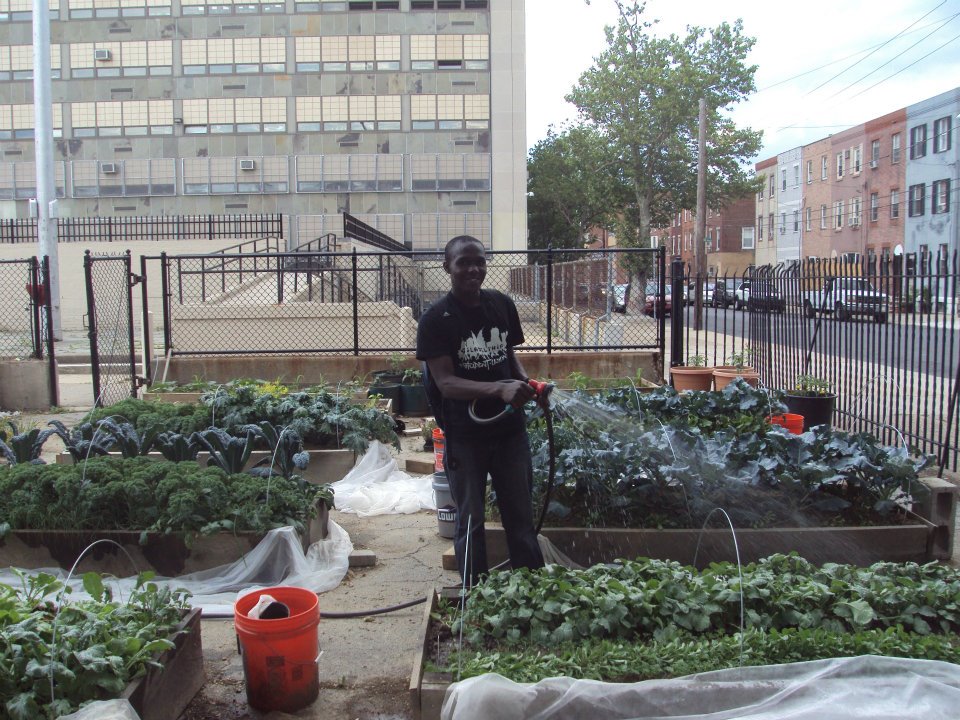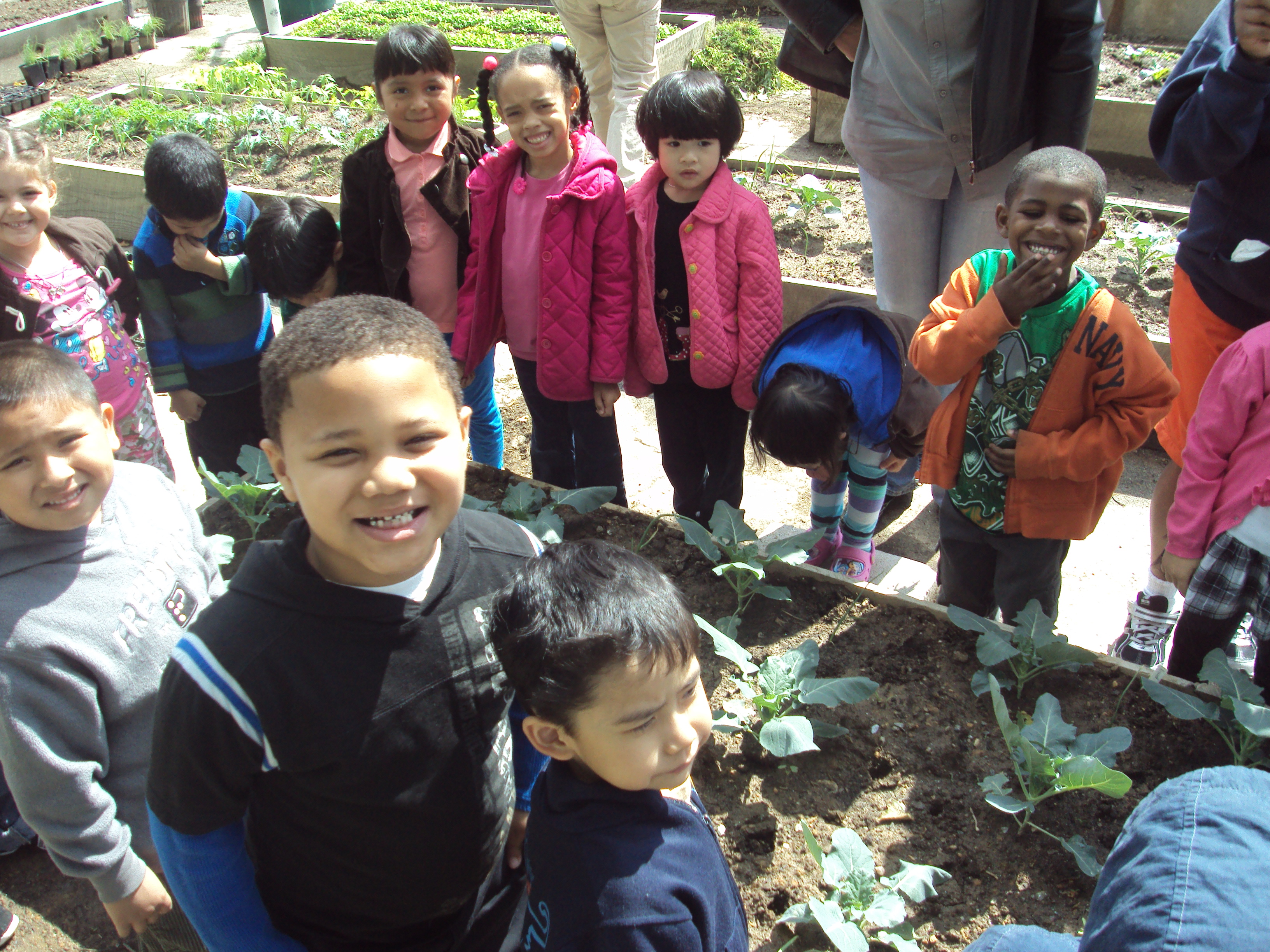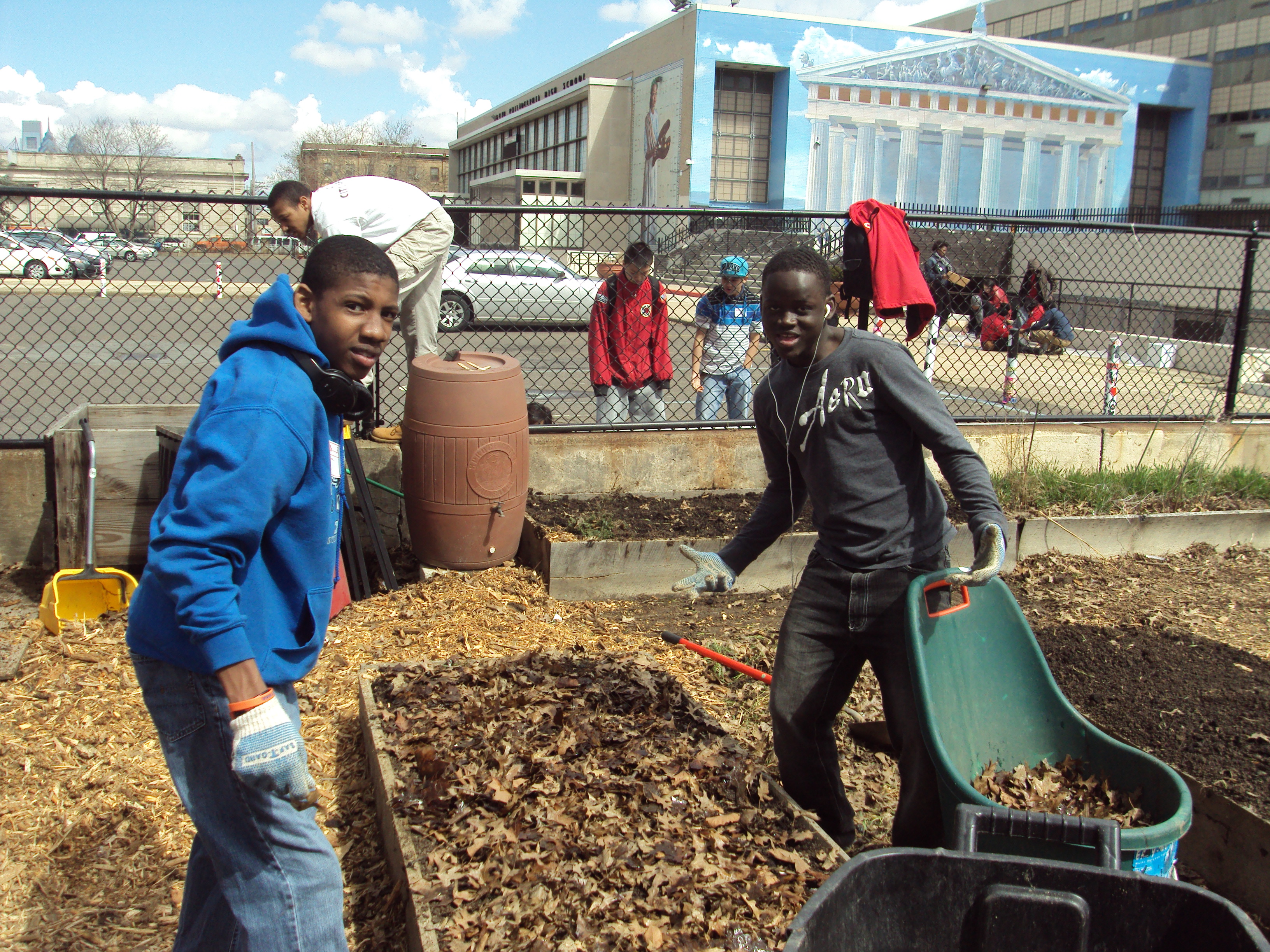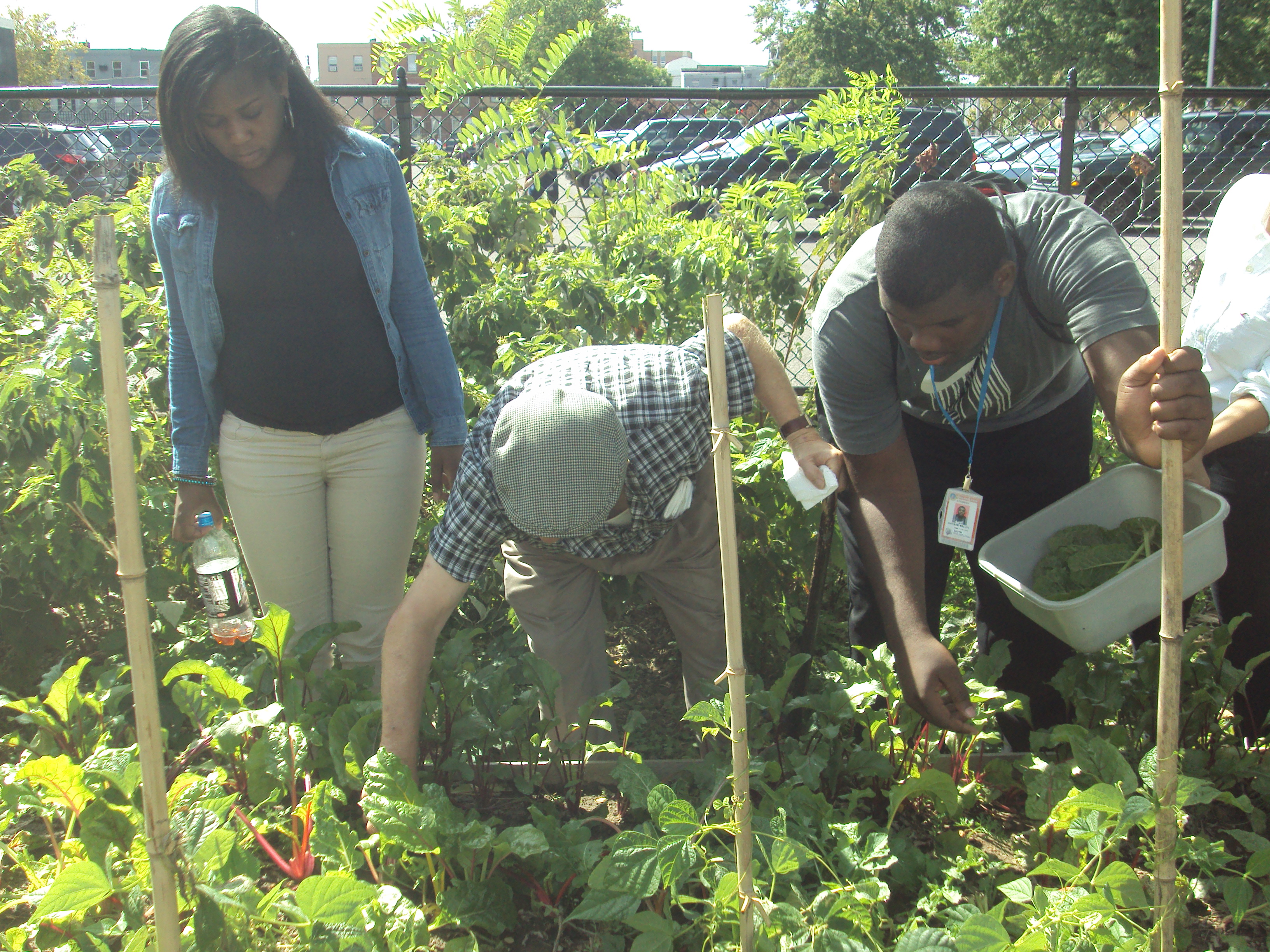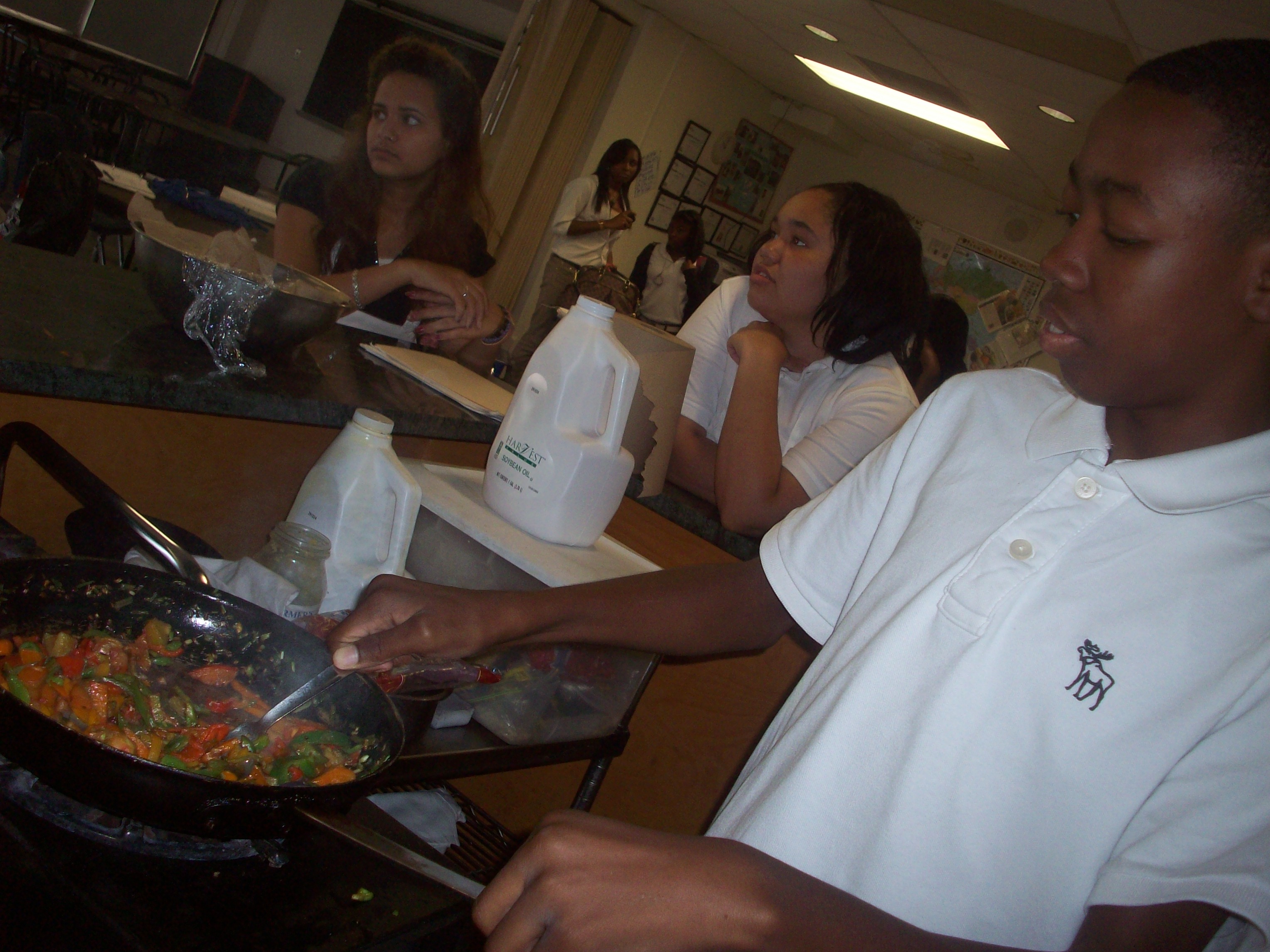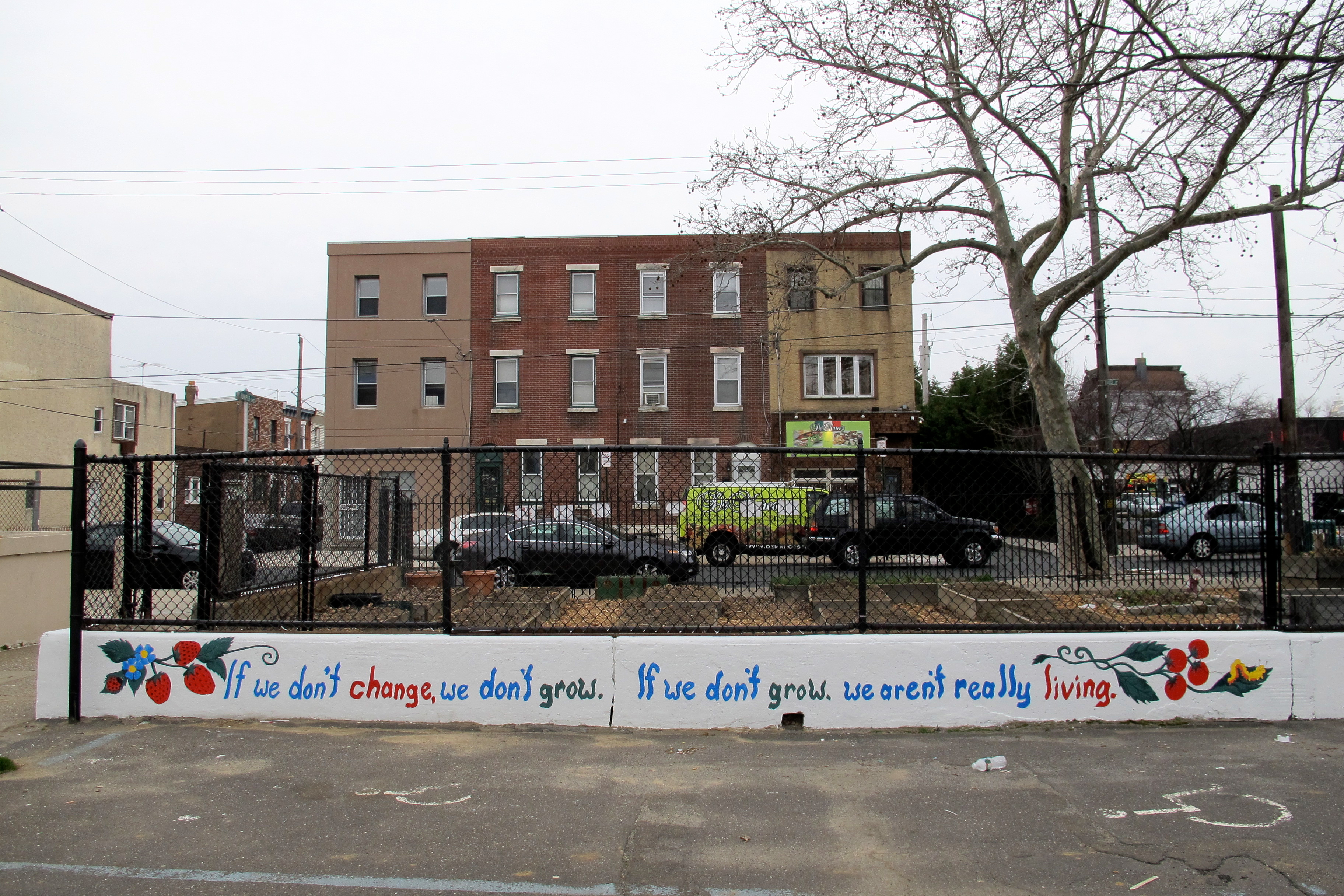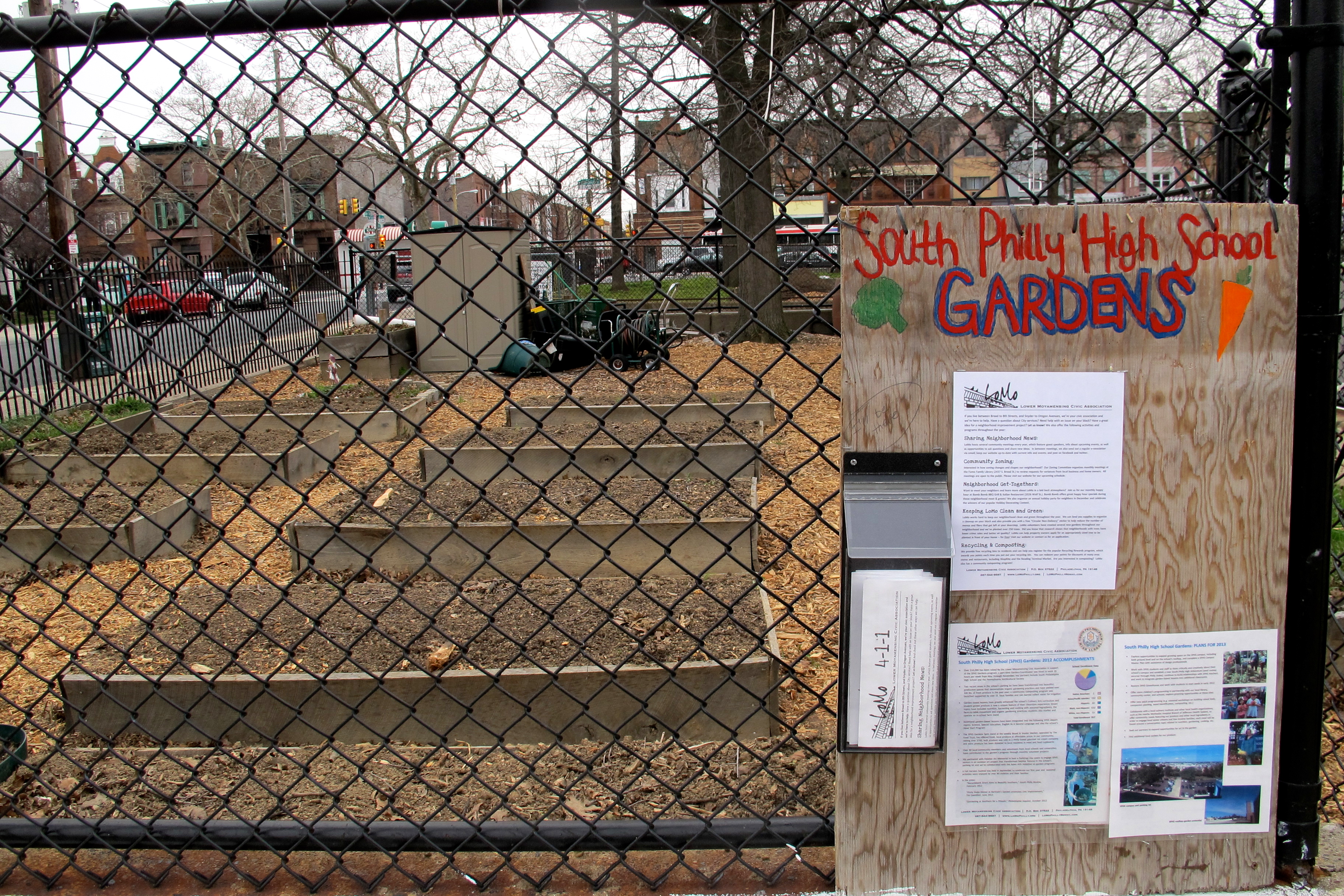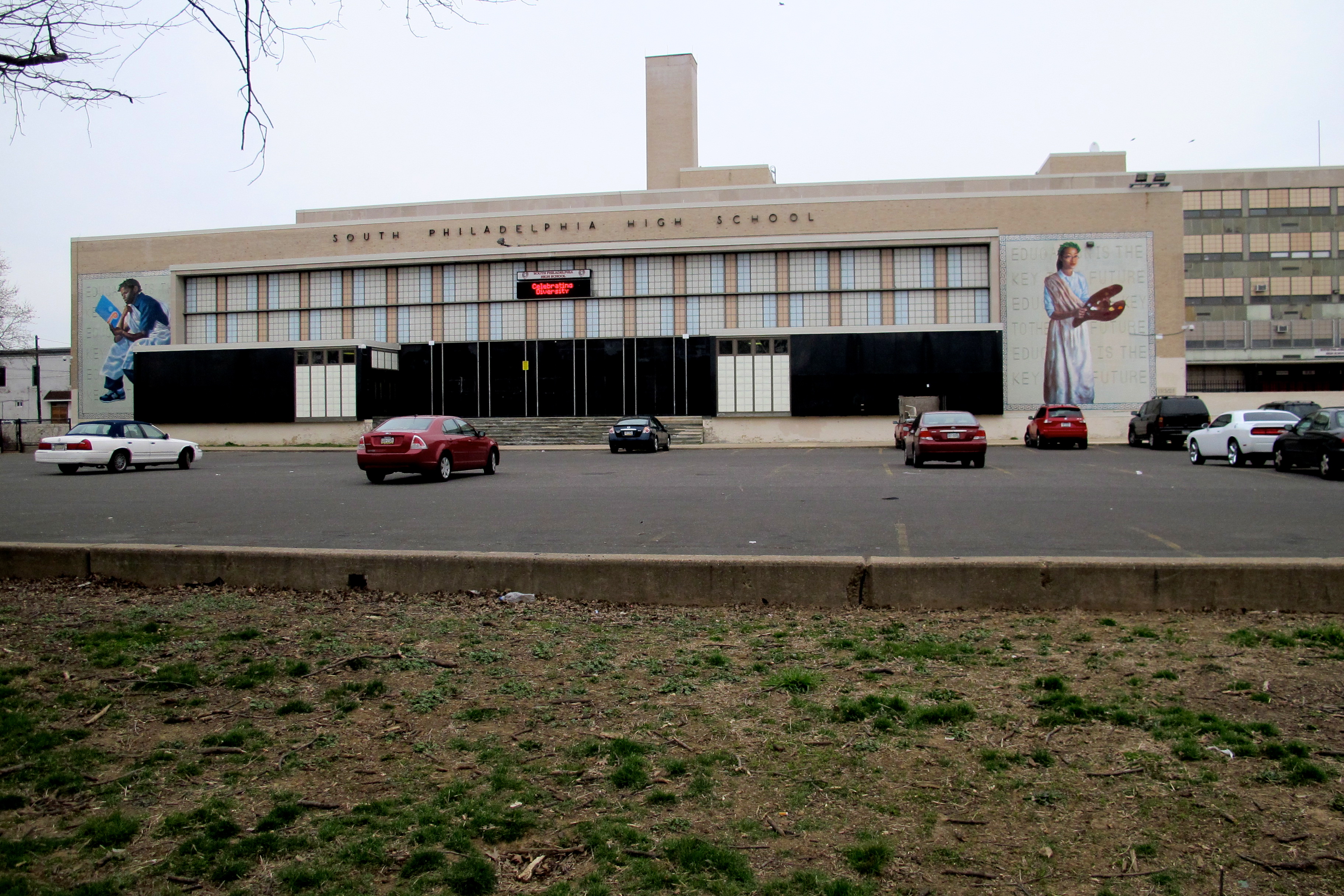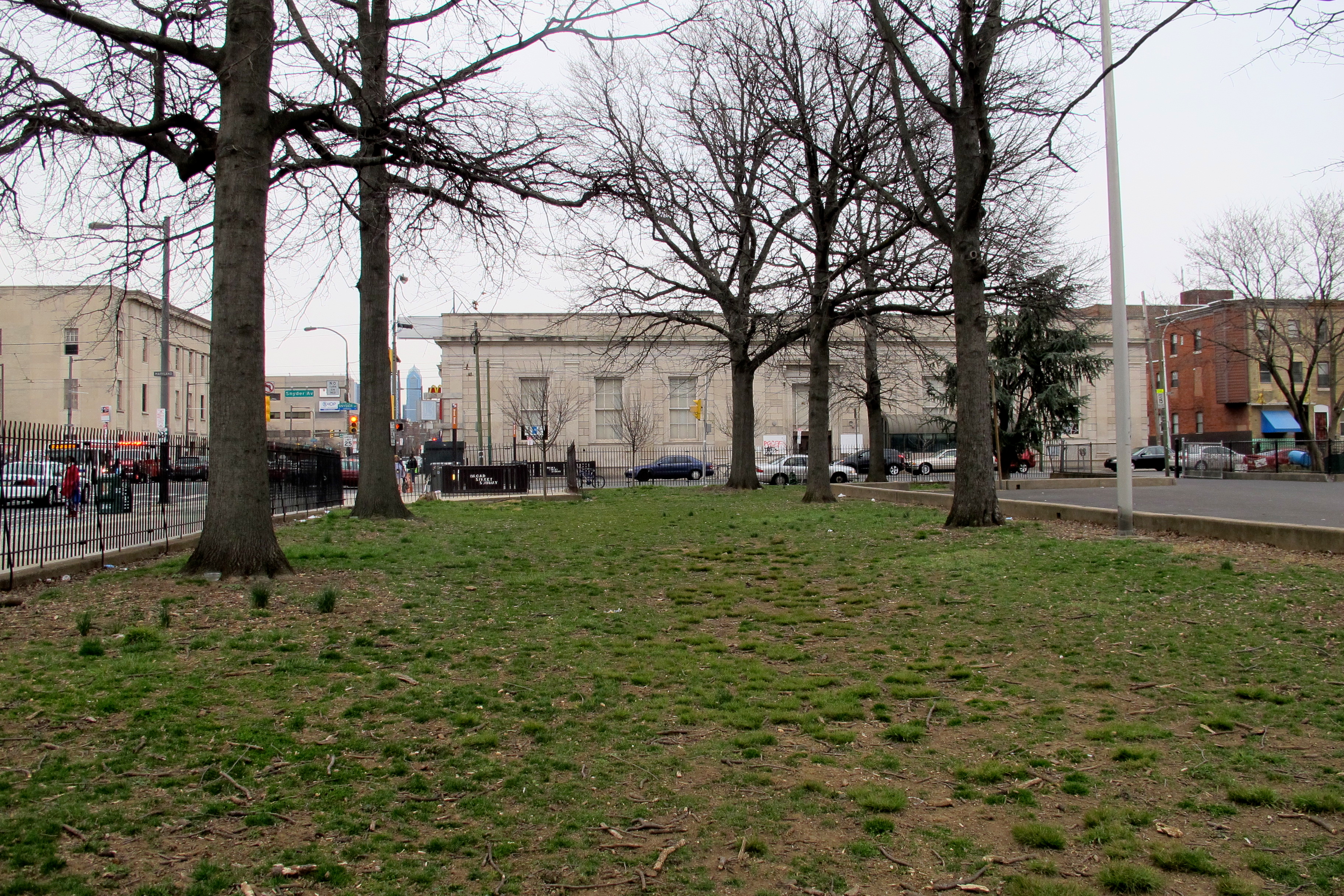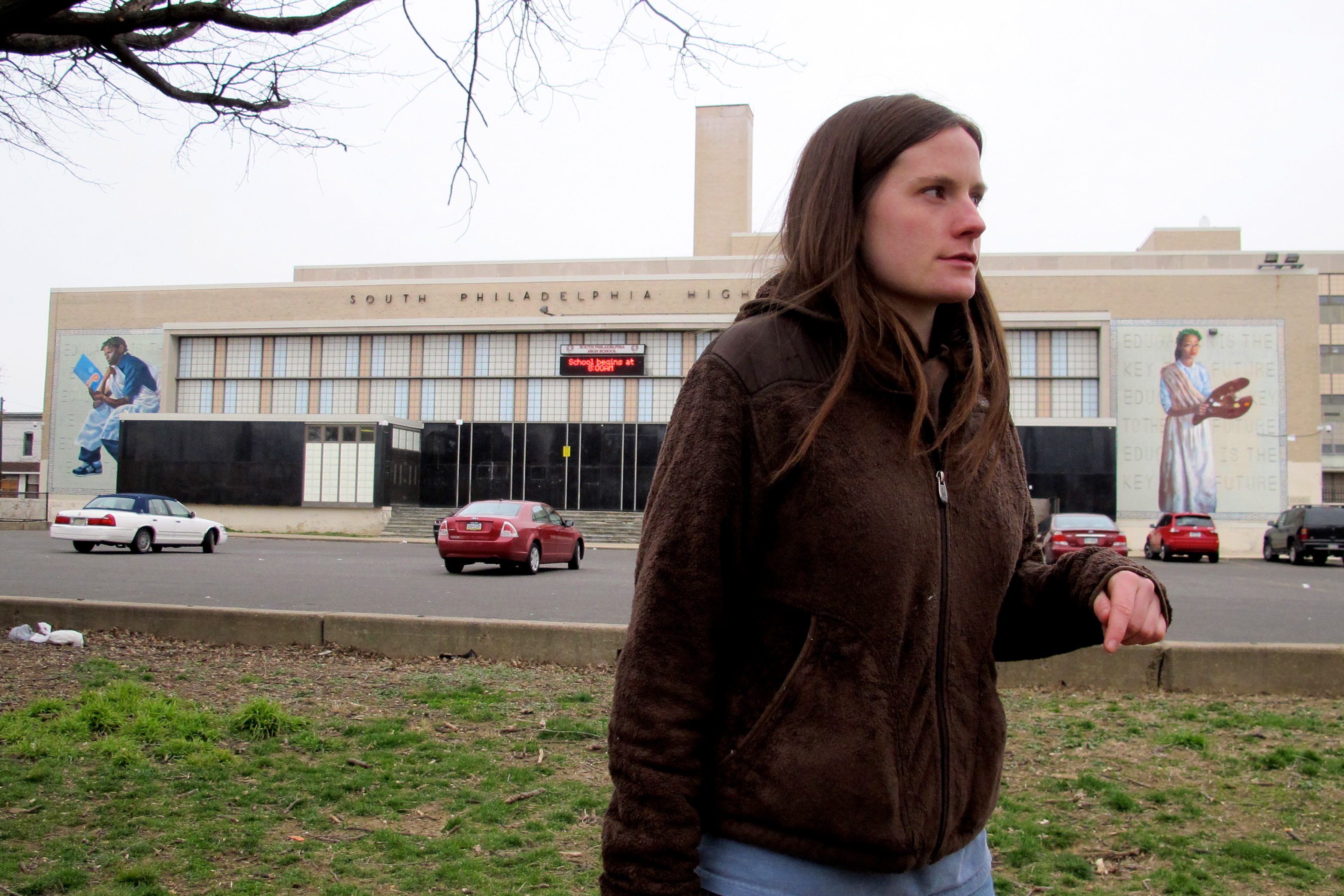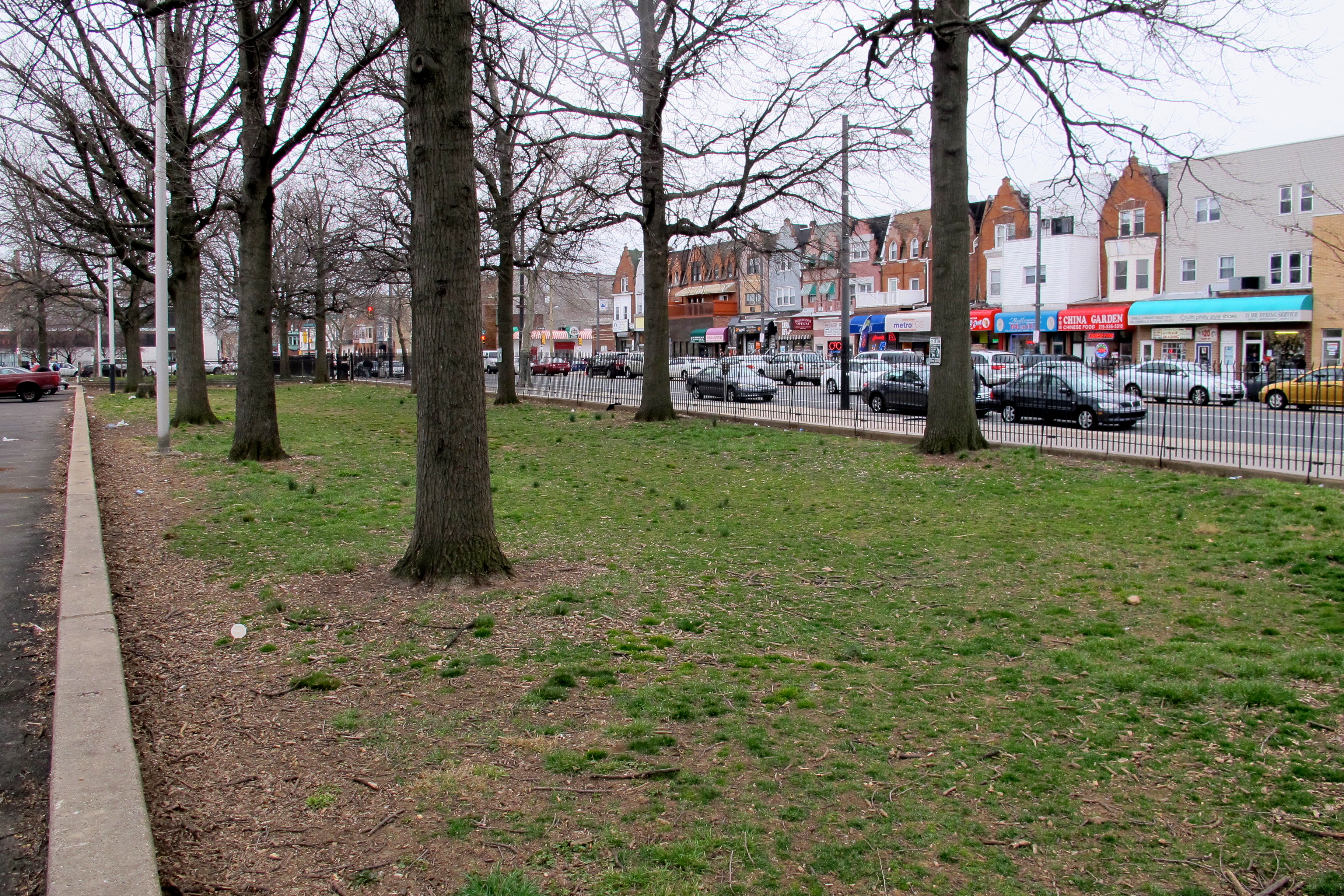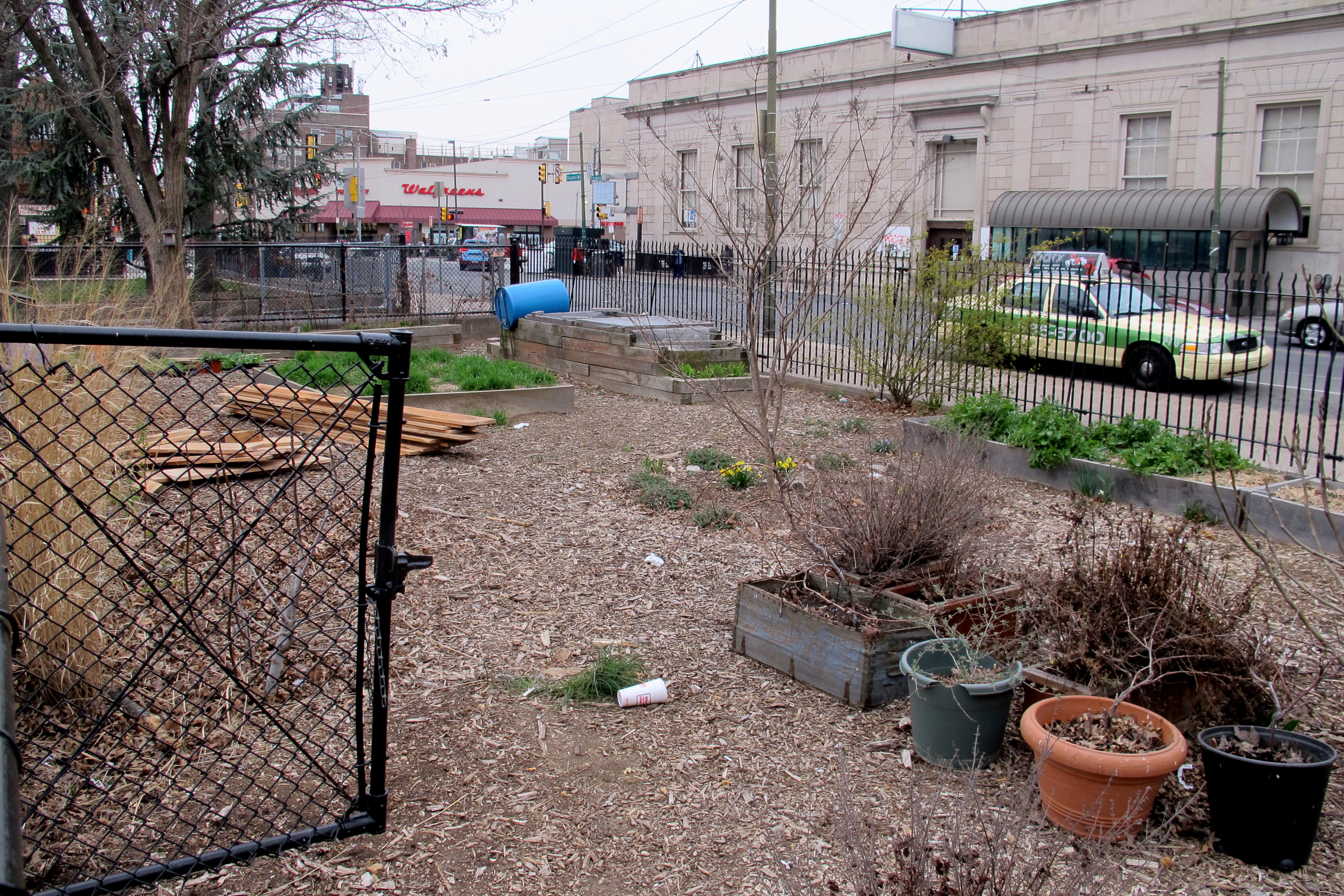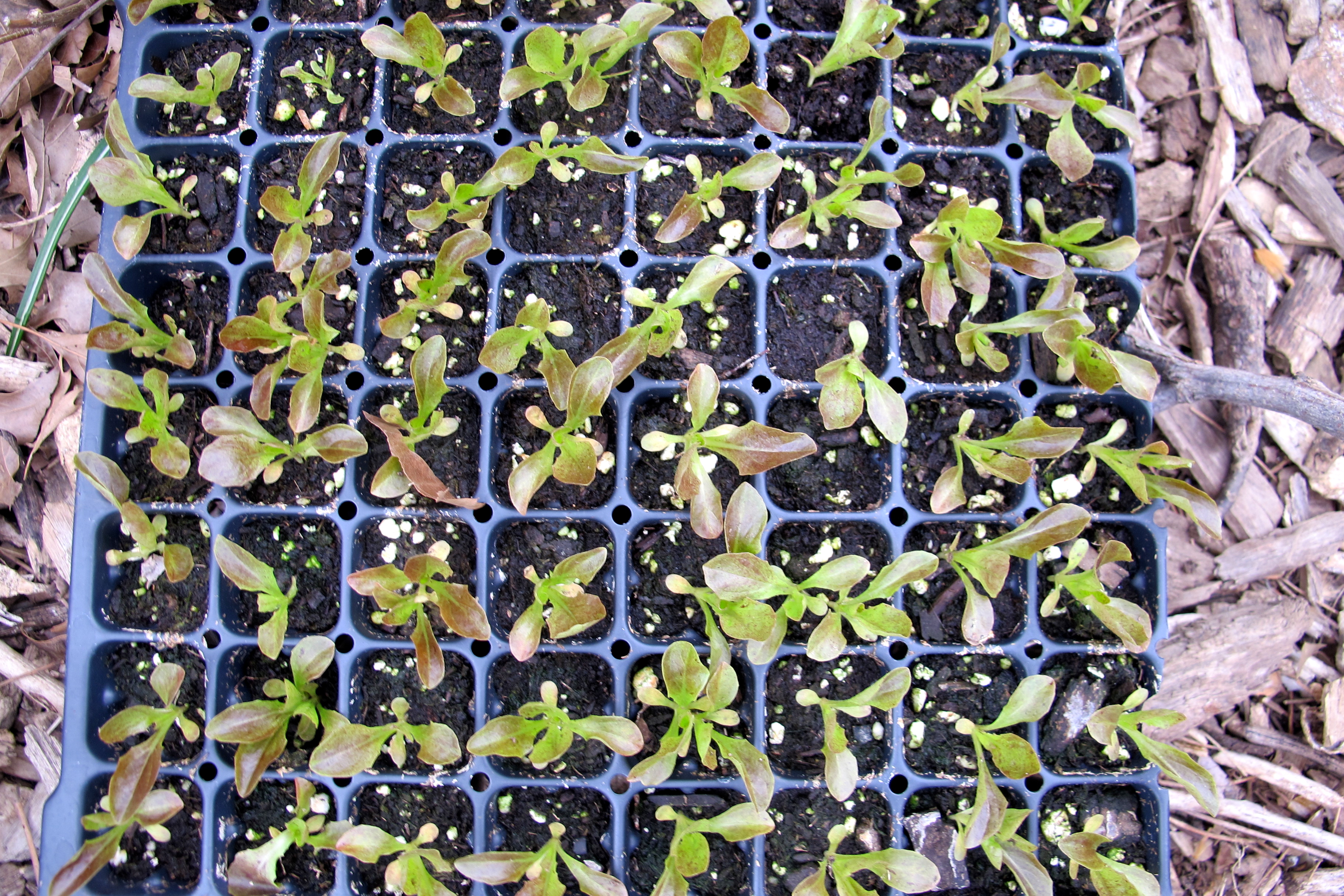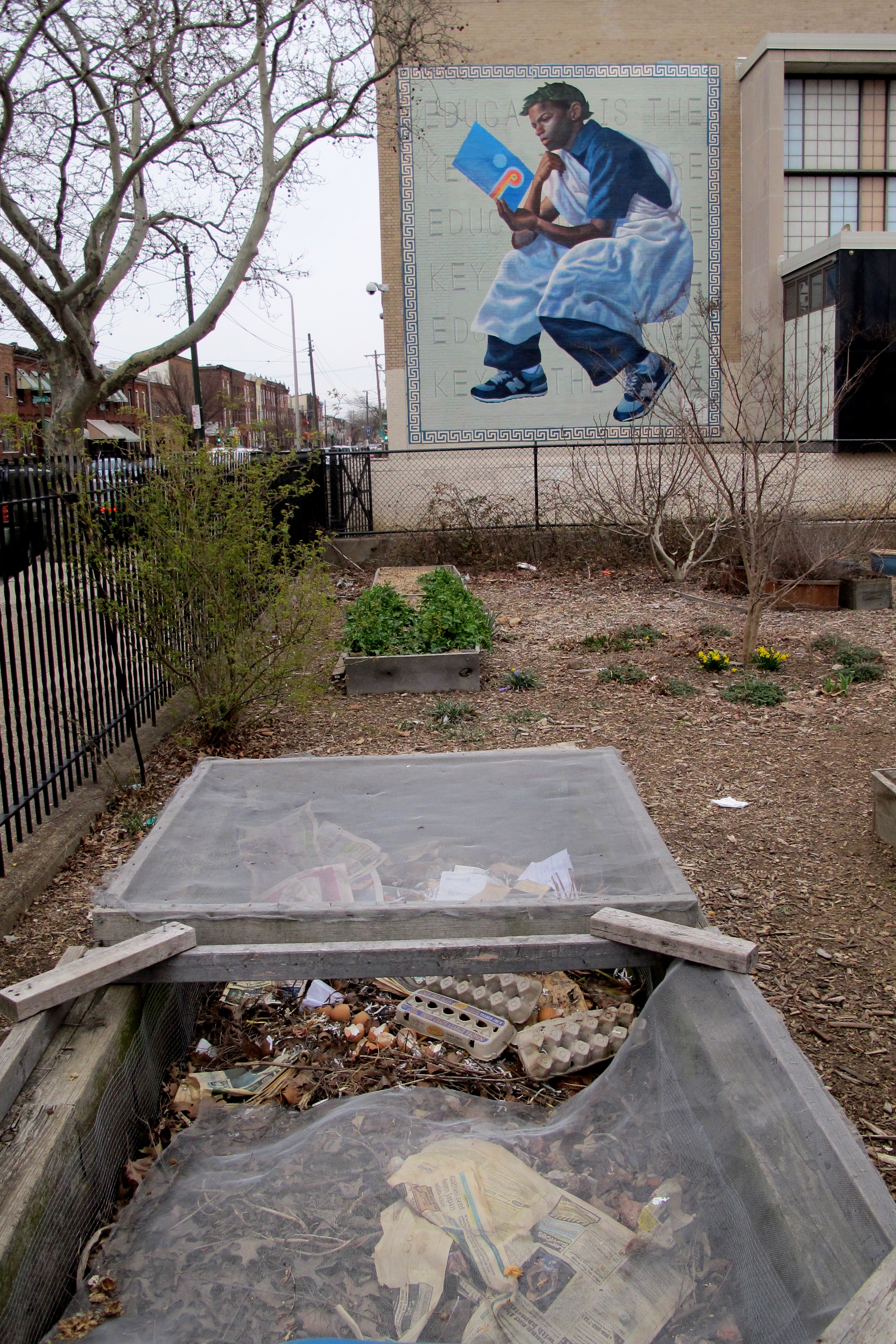Seeds sown for South Philly High’s big green ambitions
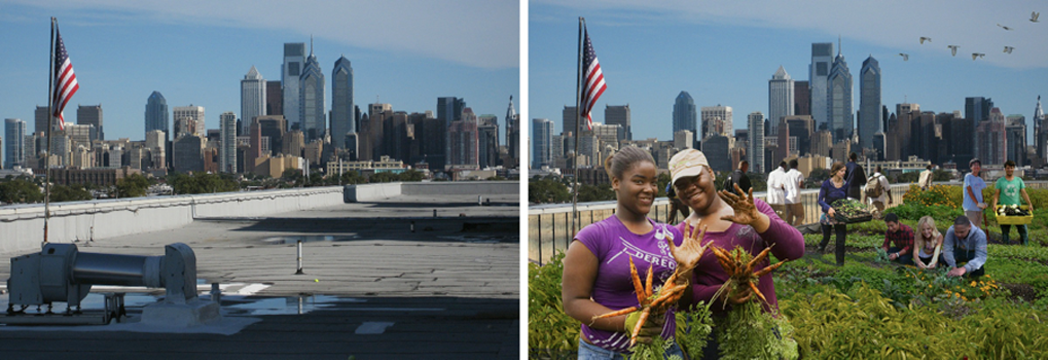
Imagine a school building topped with a huge rooftop farm and a solar array, kitchen gardens outside of the culinary classroom, raised beds planted with edibles along the parking lot, new rain gardens to manage runoff, and a park-like “arboretum” planted with local species to provide habitat for insects and birds.
That could be the future for South Philadelphia High School’s (SPHS) campus at South Broad and Snyder Avenue. And to get one step closer to this vision, SPHS and Lower Moyamensing Civic Association (LoMo Civic) launched a 60-day crowdfunding campaign on Projexity this week to support the development of a campus greening master plan by design and engineering firm Roofmeadow. The goal is to raise $26,300 to pay for Roofmeadow’s plan and cover the Garden Coordinator’s salary.
Since 2009 LoMo Civic and SHPS have worked together on campus planting projects – adding new trees, berry bushes, and hiring a Garden Coordinater to start students growing food in two new gardens. But a master plan would allow for a comprehensive approach to greening the school’s campus and provide a powerful fundraising tool.
The project’s aim extends far beyond beautifying the campus, to providing students with hands-on learning opportunities, creating a better community space for the whole neighborhood to enjoy, managing runoff and minimizing the heat-island effect, and increasing healty food access.
While South Philadelphia High School’s boxy 1950s form doesn’t have much curb appeal, its massive flat roof is just right for a major rooftop farm that also boasts fabulous skyline views. And there’s plenty of room at street level to add green infrastructure and gardens in the wide planted parking lot buffer along South Broad, Snyder Avenue, and Jackson Street fence lines.
Already the school community is getting dirt under its fingernails, and digging into smaller-scale greening projects.
Last year LoMo Civic secured grant funding for a Garden Coordinator to start working with the high school and its community to develop enterprising and educational garden projects. EOTS caught up with Garden Coordinator Molly Devinney last week to talk shop about the connections between garden, classroom, and community already underway at South Philadelphia High School.
Right when she started working at the SPHS last March, Molly Devinney said the school community’s support has been deep. Early on Principal Otis Hackney III came outside, introduced himself to Devinney, looked up at the roof and asked her how she’d feel about farming up there. But for starters, Devinney’s work is focused on two street-level garden plots along Snyder and Jackson.
It has been up to Devinney and individual faculty members to devise lessons and projects that respond to what the school and neighborhood wants and needs.
“Everything here is meant to be an outdoor classroom,” Devinney said showing me around the gardens.
Nancy Hansell, a former White Dog chef who runs the school’s Culinary Arts program, was a natural early partner for Devinney. Hansell’s culinary students are the most engaged in growing, harvesting, preparing, and selling produce farmed in raised beds next to the school’s parking lot. The serve some of their school-grown produce at the teacher’s café and have sold it at a farm stand in the lobby after school and even at the Food Trust market at Broad and Snyder last summer.
Math students have lent a hand when it came to calculating how much soil the raised beds required, and biology students have gotten a look at soil samples, bugs, and plant cells. The school’s autistic support program created a website for the garden program. The youngsters in the Head Start program at the school have even raised beets and broccoli.
There may be a specific educational lesson for a particular garden-related activity, but Devinney adds that a subtler purpose is “getting students to realize they can be active decision-makers.”
In her first year at the school Devinney said her garden work has been met with enthusiasm from neighbhors and students alike – particluarly among the community’s Southeast Asian and Italian-American residents. To appeal to students from both groups, Devinney had students plant Asian greens (bok choy, tatsoi) as well as tomatoes and basil. “Hot peppers are the common ground” for both groups, she added.
“What I grow and what I sell is very much informed by people who stop by and the students,” she said. Likewise, Roofmeadow’s master plan will be heavily informed by community input. (Stay tuned for feedback sessions this summer.)
Devinney said her work has attracted the attention of about 20 “garden grandparents” who stop by and offer advice – one elderly man even giving lessons to rapt teenagers about the proper method for picking chard.
At the occasional student-run after-school farm stand (a sort of eco-take on the bake sales of yore), everything cost $1. Devinney explained that they keep prices deliberately low to make fresh produce more accessible for more people. And that has prompted interesting conversations with students about typical prices for organic and local foods, who after laboring over the gardens have a new appreciation for the world of the $5 bag of gourmet greens.
“The income from the farm stand is not going to make this garden sustainable, Devinney said. “Investment is.” And that’s what they hope to attract through Roofmeadow’s master plan for the campus.
This spring, six biology classes will help build a new garden along Broad Street, paid for through funding from Recyclebank donations and Philly Stake. It’s the first stages of an “arboretum” filled with native species. The planted buffer along the fence line has some mature trees, and the hope is to create a system of paths and several gardens for use by the school and neighborhood. So far students have measured the space, drawn it to scale, helped with soil tests, and evaluated areas for sun and shade.
The first batch of plantings – grasses, ground covers, shrubs, and flowers sourced from Bartram’s Garden – will go in on Earth Day.
“What motivates us is that South Philly deserves really great green space. Creative, welcoming, engaging, green space, not just a slab of grass.”
WHYY is your source for fact-based, in-depth journalism and information. As a nonprofit organization, we rely on financial support from readers like you. Please give today.



